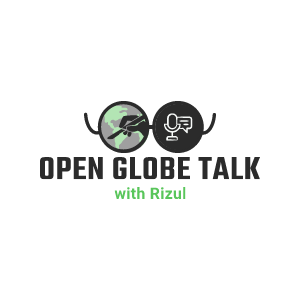September 3rd, 2021
Episode 9: Dr. Jacquelyn O’Banion, MD MSc
A discussion on
“The Intersection of Public Health, Global Leadership & Academics in Achieving Impactful Service”
Dr. Jacquelyn O’Banion, MD MSc
In this episode, we are excited to host Dr. Jacquelyn O'Banion, MD MSc, the director of Global Ophthalmology at Emory (GO-Emory). She is also an assistant professor of Ophthalmology who practices Comprehensive Ophthalmology. Dr. O'Banion received her MD from University of Texas Health Science Center, San Antonio and subsequently pursued a residency in Ophthalmology from the University of Oklahoma where she also did her Global Eye Care fellowship training. Following this, she then went on to pursue a Masters in Public Health, MSc, at the world-renowned London School of Hygiene and Tropical Medicine. Her research interests include pediatric vision screening and improving access to address health care disparities for underserved communities. Dr. O'Banion has had experience working in countries such as Peru and Eswatini where she has worked with local hospitals, clinics and ministries to establish national eye care plans. Having been an invited lecturer for global eye care, we are excited to host Dr. O'Banion today to share her experience!
Key discussion points:
-How did you get started with Ophthalmology and specifically Global Ophthalmology?
Importance of purposefully selecting your training programs based on your interests
-MSc in London vs. Fellowship in Global Ophthalmology
Each has its strengths that must be assessed
-The biggest changes in Global Ophthalmology training
Community of collaboration
Focus on long-term sustainability and training other people
-Eswatini (former Swaziland)
The country’s major barriers and needs in eyecare
The burden on its population based on age
-Challenge of eyecare between South America vs. Africa
Public system vs. the Private system
Recruitment challenges
-How to have a larger and sustaining impact in eyecare when working with underserved communities in countries abroad?
Health system assessments
Increasing no. of local Ophthalmologists
Importance of having professional partners to work in a team
-Minimum amount of time needed to understand a community
-GO-Emory
Countries emphasized (Ethiopia, Jordan, Liberia and Sierra Leone, DRC, Malawi, Mexico and India, Peru)
Structure (varies year-to-year based on fellow’s interest, partnership with Fogarty for funding)
Balancing family needs and global ophthalmology training
Local work in Georgia
Uninsured population
Bimonthly clinic in Clarkston, GA
Refugee eye care
Rural vs. Urban eyecare issues
Migrant farmers population in South Georgia
-How do medical students and trainees get started in Global Ophthalmology?
Don’t just look for global exposure in Ophthalmology
Follow up questions important to ask your training institute in order to select best training program for global ophthalmology exposure
Episode-based Resources:


